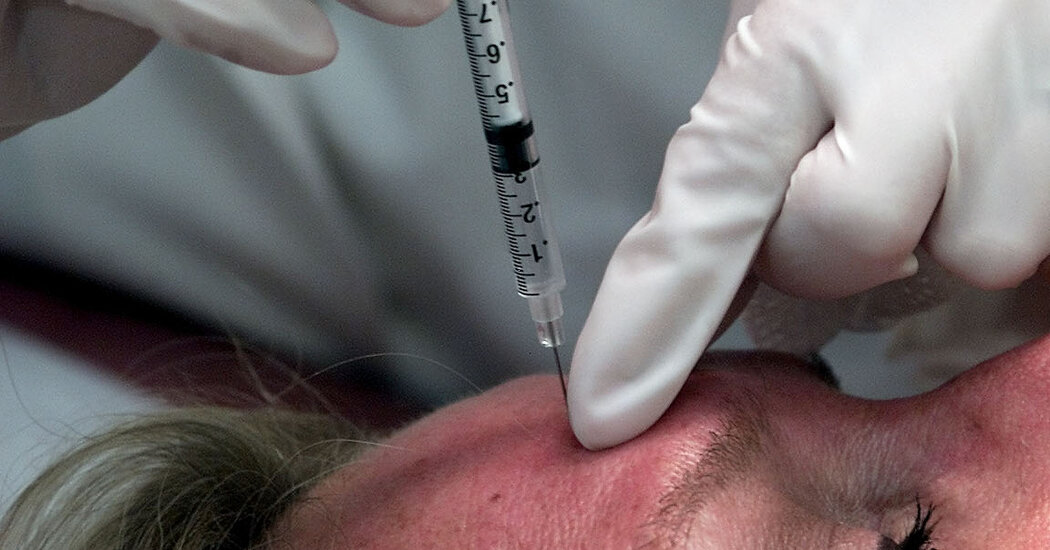Counterfeit doses and unlicensed providers are harming patients, experts said.
In 2021, police officers arrested a woman after she offered undercover agents counterfeit Botox injections in a makeshift medical office she had set up in a Los Angeles hotel room. A year later, a California-based doctor pleaded guilty to hiding from patients that the drugs she had injected them with were not name-brand Botox, but unapproved versions she bought online.
Now, federal and state health officials are investigating a spate of illnesses linked to counterfeit or improperly administered Botox that has sickened 22 people across 11 states.
“It’s like Groundhog Day,” said Timothy Mackey, a professor at the University of California, San Diego, who studies counterfeit medications. Since 2012, federal agencies have sent more than 2,000 warning letters to doctors or medical centers that purchased counterfeit or unapproved Botox for use in injections. Experts said there were two key factors fueling the problem: Consumers often don’t know to check that what they are getting is real, and fake products are readily available.
“Our supply chain has been infiltrated with counterfeit Botox — historically, presently, and will be in the future,” said George Karavetsos, a former director of the Food and Drug Administration’s Office of Criminal Investigations.
Brand-name cosmetic Botox, which is used for reducing wrinkles and signs of aging, contains small amounts of botulinum toxin that aren’t harmful when delivered in the right dose. But unapproved products may contain incorrect or even dangerously high doses, unpurified versions of these toxins or possibly none of the drug at all, Mr. Karavetsos said. “It could be anything from saline solution to tap water to a super potent concentration of botulinum toxin A, which could kill you,” he said.
An internet search found several websites selling products that matched the F.D.A.’s description of counterfeit Botox linked to the illnesses currently being investigated. Dr. David Shafer, a plastic surgeon in New York City, said that while he only purchases Botox directly from the manufacturer, he regularly receives emails advertising unauthorized or off-brand versions from abroad. One such message advertised “Korean-made” Botox — “We are ready to offer the best price,” the email read, with a WhatsApp number to contact the seller.
